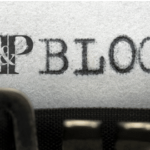If you’ve found yourself arrested and you’re a veteran, it’s essential to understand the impact on your VA benefits.
Immediate Impact
While you’re incarcerated, you won’t receive VA medical care or services.
However, your eligibility for these benefits will be reinstated once you’re released.
Disability Benefits Reduction
The impact on your disability benefits depends on the nature of your conviction:
- If you’re imprisoned for a felony, your non-service-connected disability pension payments cease after 61 days of imprisonment.
- For veterans receiving VA disability compensation for a service-connected disability, a felony conviction results in a reduction to a 10% disability rate. There is no reduction for misdemeanor convictions.
- Family members (such as a spouse, dependent child, or dependent parent) may apply for benefits not paid to you during your incarceration if they can demonstrate financial need.
Education Benefits
If your conviction is related to a non-felony crime and you meet the eligibility requirements, you can continue receiving education benefits.
Work-Release or Halfway House
Veterans in work-release programs or residing in residential re-entry centers (halfway houses) may still be eligible for monthly benefits.
VA Employee
For veterans employed by the VA who are convicted of a felony related to their job, there may be implications for VA retirement benefits.
The process involves notification, a chance to respond, and the option to appeal the decision.
Benefits While Awaiting Trial
It’s important to note that your benefits remain unchanged while you’re awaiting trial.
The VA makes changes to benefits only after a conviction, as the legal principle of “innocent until proven guilty” applies.
Overturned Conviction
In the event that your felony conviction is overturned on appeal, the VA will provide retroactive disability benefits.
However, this does not apply to pension payments, and you must notify the VA of the overturned conviction.
Regaining Benefits After Release
Upon your release, you can resume receiving pre-incarceration disability payments.
To do so, you must notify the VA within one year of your release or provide official paperwork indicating your scheduled release date.
Some areas have established Veterans’ Courts, which offer alternatives to traditional criminal justice and prioritize help and treatment for veterans over punishment.
Additionally, being incarcerated does not prevent you from applying for disability compensation benefits at your nearest VA, particularly if you have a service-connected disability.
This ensures you have the necessary support upon your release.
Do you have questions about your VA Disability Benefits? Check out our YouTube Channel.
Almost every Wednesday at 1400 hours EST, our attorneys and staff host a live Q&A to answer your questions about VA disability benefits.
Have something to ask we didn’t cover here?
Come ask us on our YouTube channel.
We also have a wide variety of content about benefits and other topics you may be interested in watching, so don’t forget to subscribe!
Click here our the image above to be directed to our channel.



